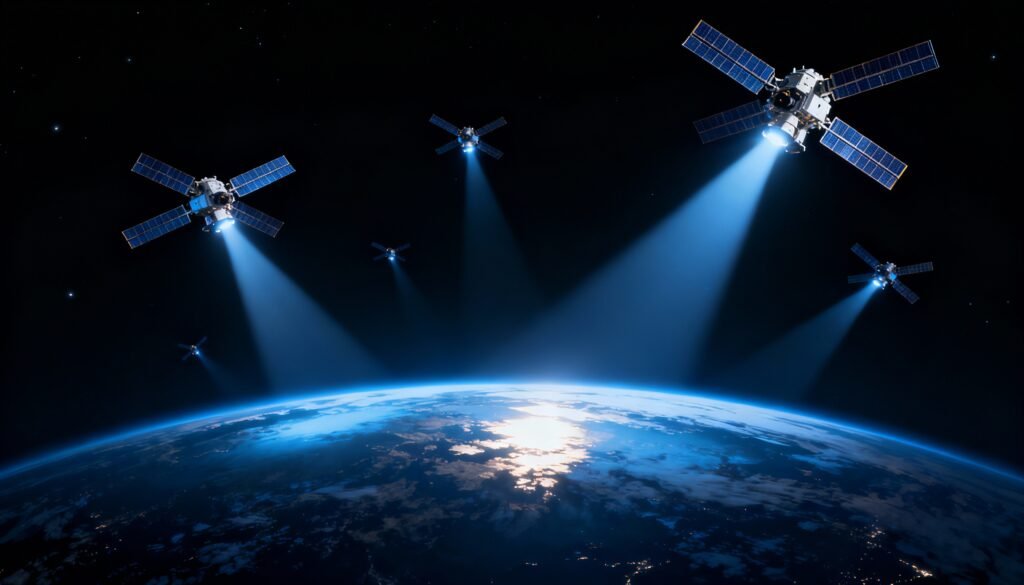Imagine a world where nighttime could be turned into daylight — not with electricity, but with mirrors orbiting Earth. That’s the vision of Reflect Orbital, a pioneering space startup developing a network of mirror-equipped satellites designed to reflect sunlight onto Earth’s surface after sunset.
The goal: extend daylight hours for clean energy, agriculture, and urban illumination.
What Is Reflect Orbital?
Reflect Orbital is an American startup proposing to launch thousands of reflective satellites that can redirect sunlight to specific areas on Earth. This “artificial sunlight” system could illuminate cities, disaster zones, or solar farms long after the sun sets.
The concept, inspired by Soviet experiments in the 1990s, combines orbital mechanics, solar reflection, and AI positioning to control where light falls — creating a “mirror constellation” in space.

How Does It Work?
Each satellite would carry a large ultra-thin reflective sheet that can tilt and adjust its angle to redirect sunlight.
By coordinating multiple satellites, Reflect Orbital could extend daylight over certain regions, allowing for:
- Extended solar power generation
- Nighttime illumination for safety or emergencies
- Reduced dependence on electricity in developing regions
However, this technology also raises ethical and environmental concerns.
Potential Risks
While artificial sunlight sounds beneficial, scientists warn of possible side effects:
- Light pollution: Interfering with astronomy and ecosystems.
- Circadian disruption: Affecting wildlife and human sleep cycles.
- Energy imbalance: Altering local climates or atmospheric patterns.
- Space debris risk: Thousands of satellites increase collision chances.
Balancing innovation with environmental safety will be critical.
Scientific & Ethical Debate
Experts are divided — some view Reflect Orbital as a sustainable light source, while others see it as a potential ecological hazard.
Organizations like the IAU (International Astronomical Union) have already expressed concern about bright satellite constellations interfering with telescopic observations.
Still, the idea sparks an important question: Should humans engineer artificial daylight from space?
Future of the Project
Reflect Orbital plans to conduct a small-scale test launch before 2030, aiming for a global rollout if successful.
If proven safe, artificial sunlight could revolutionize energy efficiency, agriculture, and urban lighting, reshaping how humanity interacts with daylight itself.

Fascinating Facts
- Reflect Orbital plans a mirror constellation with AI tracking.
- Similar experiments were tested by Russia’s Znamya project in 1993.
- Artificial sunlight could extend solar panel operation by 30–40%.
- Scientists are testing light intensity controls to minimize ecosystem impact.
Conclusion
The Reflect Orbital project challenges our perception of day and night.
Whether it becomes a sustainable breakthrough or a controversial experiment, one thing is clear — the future of light may no longer depend solely on the Sun rising each morning.











